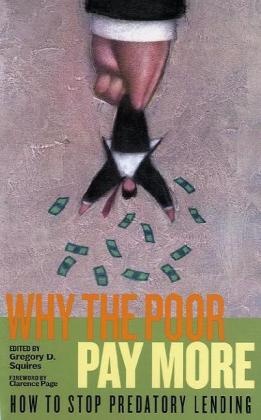Read more
Informationen zum Autor GREGORY D. SQUIRES is Professor of Sociology and Chair of the Department of Sociology at The George Washington University. Currently on the Board of Directors of the Woodstock Institute and the Advisory Board of the John Marshall Law School Fair Housing Legal Support Center in Chicago, he has served as a consultant and expert witness for fair housing groups and civil rights organizations around the country and as a member of the Consumer Advisory Council of the Federal Reserve Board. He has written for several academic journals and general interest publications, including Social Science Quarterly , Urban Affairs Review , the New York Times , and the Washington Post . His recent books include Insurance Redlining , Color and Money , Urban Spraw , and Organizing Access to Capital . Klappentext The proverbial American dream of owning a home has become an all-too-real nightmare for a growing number of families. The most vulnerable segments of our society--including minorities! the elderly! and working families--are being victimized by financiers who lure them into commitments they cannot fulfill. Collectively known as "predatory lending!" these practices include offering higher interest rates than can be justified by the risk! high pre-payment penalties that lock families into exploitative loans! and monstrous balloon payments that often result in default and the loss of the home. The net result can be disastrous: damage to one's credit rating! bankruptcy! and even the loss of lifelong savings. Why the Poor Pay More is an incisive exposure of these practices--how they have evolved! why they have become so prevalent in recent years! and how their negative effects can be quantified--and showcases community efforts to combat them along with outlining active roles that individuals! advocacy groups! financial and legal service providers! and policymakers can play in reversing this destructive trend. Zusammenfassung Highlighting community initiatives already underway to combat predatory lending and an extensive listing of practical resources! Why the Poor Pay More outlines active roles that individuals! advocacy groups! financial and legal service providers! and policymakers can play in reversing this destructive trend. ...

